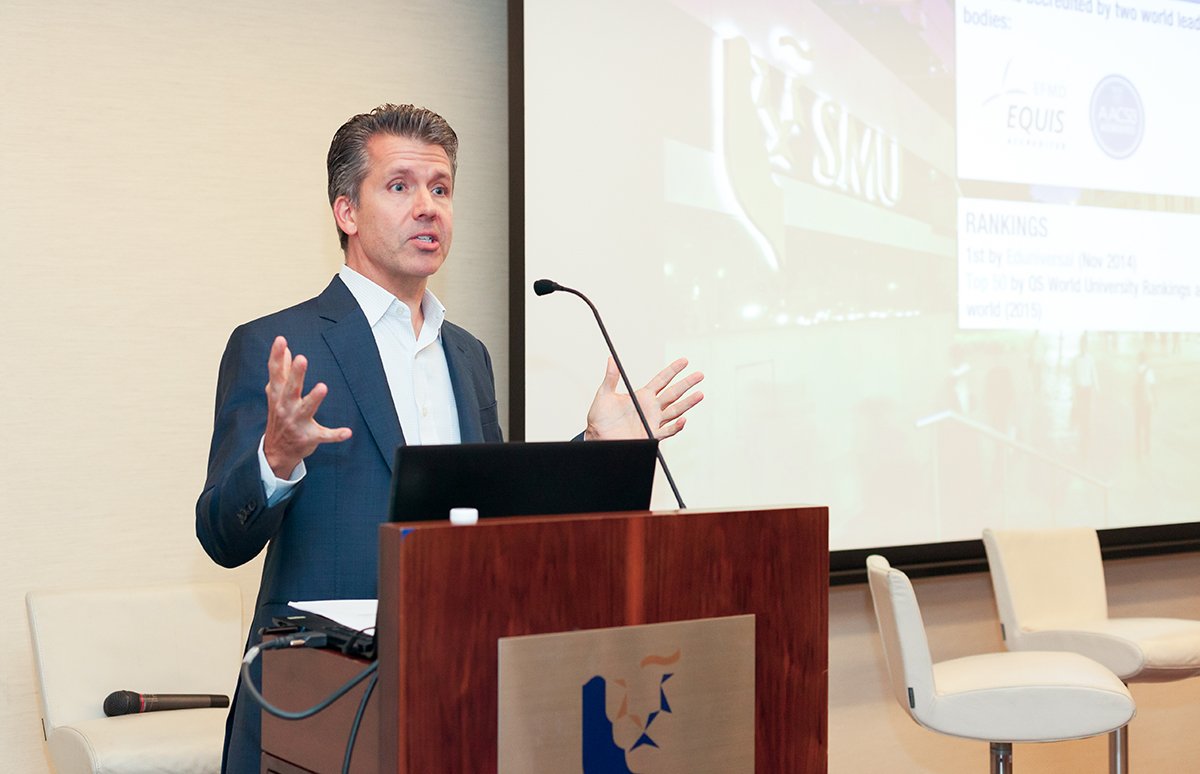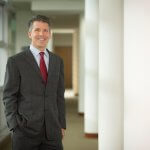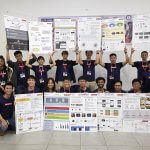By the SMU Social Media Team
Radical changes in the workplace as a result of digital technology and automation mean job descriptions are being re-written across the board. Even the HR department cannot escape unscathed.
The discipline and function of HR are changing. And being a ‘people-person’ is no longer sufficient for those wanting to succeed in this field, says Professor Rick Smith, Academic Director of the Master of Human Capital Leadership at SMU’s Lee Kong Chian School of Business.
The ideal candidate for the profession is now, he says, a “human capital analytics person,” someone who can embrace analytics and the language of business, and is motivated to help a company achieve a strategic, competitive advantage through its people.
We spoke to Professor Smith to find out more about the how the HR discipline is changing, and how aspiring and existing HR professionals can ensure they have the right skills to remain relevant in the organisation of the future.
It’s no secret; our workplaces are being transformed as a result of new technology. How is this impacting the HR discipline?
Prof Smith: It’s created a new inflection point in the HR profession as it provides both a challenge as well as an opportunity to review the underlying value proposition of the discipline.
The challenge is keeping up with the pace of business using traditional HR processes. And of course, the opportunity with this change is to fundamentally shift the nature of HR roles to provide new business insight through analytics.
How are digital technology and automation impacting the HR function within organisations specifically?
Prof Smith: First, technology advances are changing the nature of many traditional HR processes. Recruiting, for example, is now very much a social media based process and selection is increasingly automated with smart CV screening solutions.
Second, as the workplace changes with automation and the incorporation of digital technologies, the HR function must continually update the way it applies HR practices and policies to the workforce. HR professionals are now challenged with constant updates as jobs change, needed skills shift, and the nature of work is fundamentally changing in some industries.
Are the traditional ‘people-skills’ now no longer a prerequisite for roles in HR?
Prof Smith: The ‘soft skills’ of managing people and having strong EQ will always be valuable in business. However, this is no longer sufficient to be successful in HR.
Unfortunately, many people have gravitated to careers or interest in HR since it did not involve quantitative or mathematical skills. That’s no longer the case. While we don’t expect that one will need a PhD in statistics to be an HR manager, having a fundamental understanding and appreciation for quantitative measurement and analytics is now needed.
This will involve some personal re-skilling, investment in education, and moving from being a ‘people-person” to a ‘human capital analytics person’.
What then is the key skillset for an aspiring HR professional today? Are HR qualifications and accreditation important?
Prof Smith: The shift in the HR profession is beginning to raise questions such as: “What is the discipline of Human Resource Management?” and “How do we define what the HR Function does in organisations?”
This questioning of the profession begins to raise awareness about the qualifications of the people practicing HR. We saw parallels in the finance function several years ago as issues in finance practices brought new rigour to the CPA qualifications and financial service qualifications. I expect to see an increased emphasis on HR qualifications through certification and accreditation around the world.
Trend forecasts for 2017 tell us we’ll see Artificial Intelligence infuse every aspect of our lives this year. Many companies already use automated recruitment processes – will AI eventually make the HR department obsolete?
Prof Smith: The good news is that AI will help address the age-old problem of how to we free up HR time to shift from ‘administration’ to ‘strategic thinking’. The change to automated employee self-service has been going on for decades and now the shift to automated recruitment and applicant management is a natural extension.
We expect to see more automation of talent management processes and other HR processes dealing with automation. This may be viewed as a threat to administrative roles in HR, but is likely a welcome addition to HR professionals who are looking for ways to add value to the business. With automation comes data – and with data comes an opportunity to develop new insights for the business. This, of course, takes us back to the need for strong analytics in the HR profession.
How is SMU inspiring the next generation of HR professionals to succeed?
Prof Smith: As researchers, we have studied the trends, the practices, and the ideas related to human capital and business. It is an exciting time for developing new insights in our field.
As educators, we examined the state of the HR profession and the needs of business in Asia and found a gap in capability. We felt that we should offer a programme to help build future leaders with a strong awareness of human capital.
Note that I use the term ‘human capital’ and not ‘human resources’. We are not teaching the basics of the HR profession; instead, we are focused on developing an understanding and appreciation for creating competitive advantage through the people in the organisation. We want our students to ask the fundamental question: “How do I help my company create competitive strategic advantage through human capital (people)” then shape practices that help them do this. We feel that this will help our students in redefining what the HR function might look like in the future.
What does SMU’s Master of Human Capital Leadership programme offer students over and above experience gained in the workplace itself?
Prof Smith: Coming back to school after working for several years is not easy for anyone. However, for those who really want to push themselves, challenge their thinking, and perhaps even change themselves or their careers, this programme can serve as a catalyst. We do this by being anchored to business, leveraging analytic research, creating a network, and challenging convention.
In addition to the classroom experiences, our students build a strong network through their interactions with each other as well as with the other participants in our programme. We work closely with the HR Center at the Wharton School of Business and visit them during the programme. This offers the students an opportunity to make global connections related to human capital with others and hear from practitioners dealing with challenges on a global scale. Through our collaboration with the Chartered Institute of Personnel and Development (CIPD), the students gain access to current thinking and networks in the HR profession. Our relationship with the Singapore Human Capital Leadership Institute provides links to others in the region as we shift from local thinking to a global mindset.
Learn more about the SMU Master of Human Capital Leadership and see how you can be a part of our coming intake.








